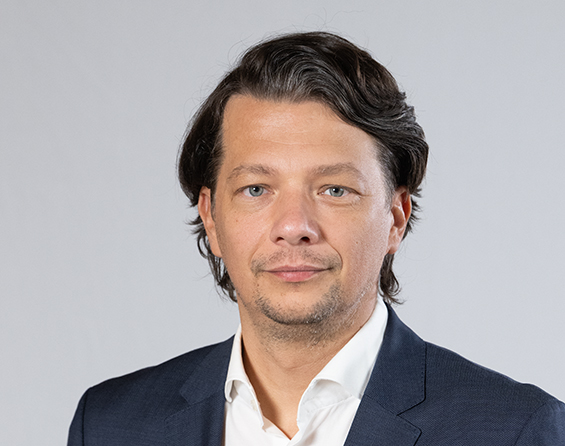
AI Profiling: Stig Rästa
Agenda items: 7
200/200 profiling (100.0%)
Total Speeches: 11
Analysis Period: 2025-03-26 - 2025-06-18
Political Position
The politician’s position is simultaneously strongly value-based and pragmatically policy-centric, initially emphasizing fidelity to the constitutional order and a moral obligation to advance human rights and equality. Subsequent positions introduce a forceful focus on structural economic reforms designed to boost productivity and the immediate reinforcement of public security through modern technology. All these themes—ranging from constitutional fidelity and human rights to the economy and security—are framed as strong support or demands, thereby linking values and policy with the ultimate goal of enhancing the quality of life for all people in Estonia.
Topic Expertise
The politician demonstrates broad and deep expertise, clearly spanning two technical domains: international law and human rights protection mechanisms, and macroeconomics. Their approach is detailed and analytical, relying on specific terminology (e.g., optional protocol, smart economy), technical indicators (e.g., GDP per working hour, R&D expenditures), and legislative solutions, which points to an ability to handle complex political problems in a data-driven manner.
Rhetorical Style
The politician's rhetorical style is consistently formal and official, but it is characterized by an urgent tone that emphasizes the need for immediate action and a long-term strategy. He skillfully employs balanced appeals, combining detailed, data-driven, and analytical arguments (especially on economic topics) with strong personal and moral calls to action (social change, security). This style merges procedural correctness and logical argumentation with direct, emotional addresses, utilizing personal examples as a tool for persuasion.
Activity Patterns
The politician's pattern of activity during the initial period was low-frequency and strictly confined to official Riigikogu duties. Following the swearing-in ceremony in March and a single appearance in April, activity increased to two speeches by June, suggesting infrequent, yet more consistent, participation in legislative work. All recorded activities have been formal appearances on the floor of the Riigikogu, focusing on supporting specific draft legislation and strategic issues such as economic productivity and public security.
Opposition Stance
The politician's opposition activity is extensive, encompassing sharp social criticism (discrimination, harassment, shortcomings in the legal system) and economic policy opposition (low added value, underfunding of R&D). The criticism is primarily aimed at systemic and behavioral deficiencies, while avoiding the naming of specific political opponents or parties. Regarding social issues, the tone is moralizing and uncompromising, demanding direct change from target groups (e.g., men who harass) and dismissing the opposing side's fears (e.g., a surveillance society) as unfounded.
Collaboration Style
The politician's collaborative style is defined by actively seeking broad consensus, emphasizing the importance of taking a shared moral stance and acting upon it. He repeatedly appeals to his colleagues in the Riigikogu to support both legislative drafts and the government’s work, stressing the necessity of political unity. Beyond parliamentary cooperation, he demonstrates a willingness to involve social partners (employers, trade unions) in the creation of key strategies (such as economic policy), aiming for cross-sectoral agreement.
Regional Focus
The politician's regional focus is exclusively directed towards national and international topics, addressing the Estonian economy, security, and domestic legal system within a broader context. International comparisons and examples (the EU, Nordic countries, the UN) are consistently used to support national policy. Throughout the entire period under review, there is a complete absence of any specific attention paid to local governments, regional communities, or concrete regional projects in Estonia.
Economic Views
The politician’s economic views center on high value-added, innovation-based economic growth. Achieving this requires active and strategic state intervention, particularly through increased investment in research and development (R&D). He advocates for the state to play a role in improving access to targeted subsidies and venture capital to encourage a shift away from subcontracting toward the creation of final products, with the goal of boosting productivity and ensuring higher wage levels. Economic success is directly linked to social equity and equal opportunities, which are considered prerequisites for attracting smart and entrepreneurial labor to the country.
Social Issues
The politician's social policy profile focuses strongly on promoting human rights and gender equality, demanding a shift in societal attitudes to eliminate discrimination, sexual harassment, and violence. In the field of education, the need for reform is emphasized, focusing on modernizing curricula, ensuring sustainable funding for higher education, and valuing technology-intensive vocational and lifelong learning. Regarding security matters, the politician supports increasing the technological capabilities of law enforcement, but simultaneously clearly stresses the need to balance security and privacy, ensuring the transparency and legal delineation of surveillance measures.
Legislative Focus
The politician’s legislative activity began with a period of procedural immersion, but quickly expanded into a multifaceted strategic agenda. The focus has been on three main areas: strengthening international human rights (specifically, the protection of women), long-term economic productivity, and ensuring public safety through the use of modern technologies. The politician has consistently championed key legislative proposals, stressing the necessity of using legislative mechanisms to strengthen the connection between science and business and to expedite procedures, particularly those related to security matters.